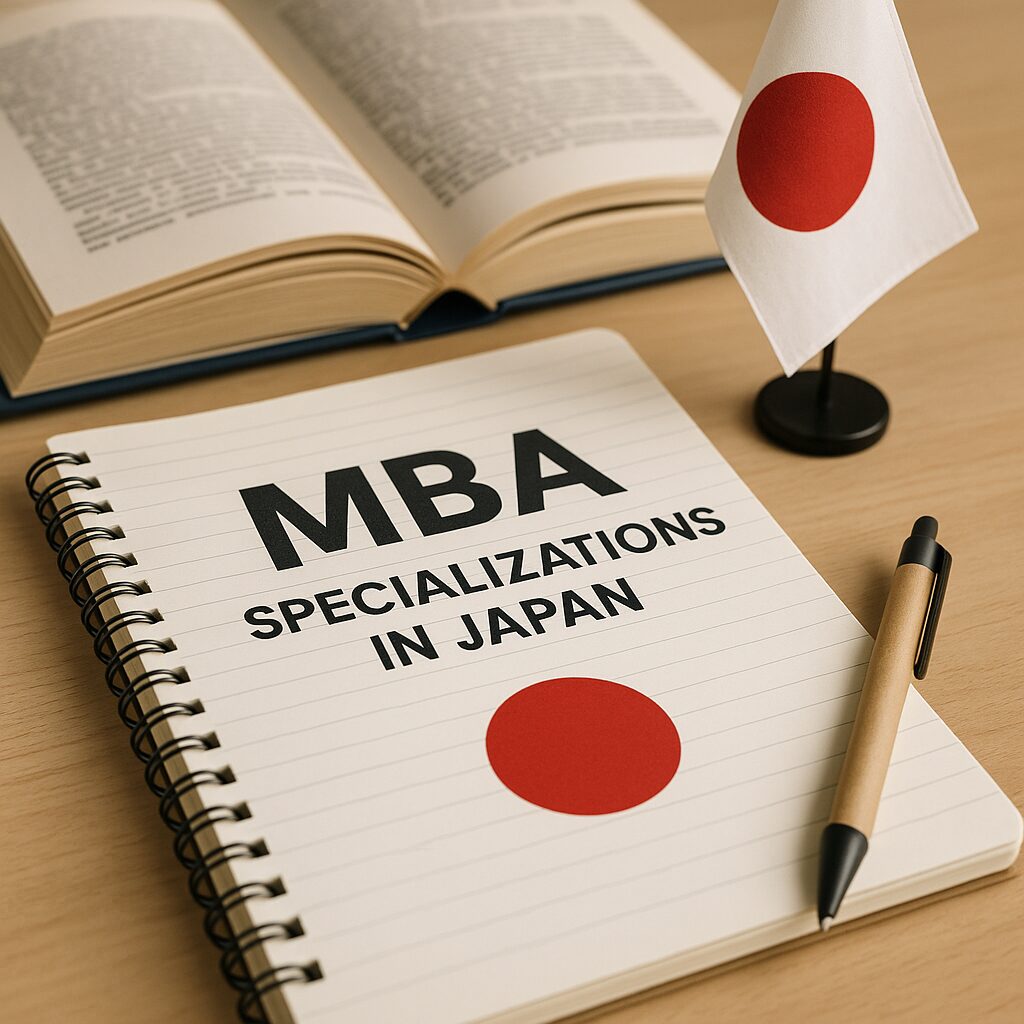
Study MBA in Japan for International Students: A Complete Guide for 2025
Thinking about getting your MBA in Japan? It’s becoming a super popular choice! Japan offers a cool mix of Eastern and Western business styles. This gives you a global view that can really help you stand out. By 2025, skilled business folks will be even more in demand. For international students, an MBA in Japan is more than just a degree.
It’s your ticket to a great career and an amazing cultural experience. I put this guide together to give you the info you need to decide if an MBA in Japan in 2025 is right for you. I will cover the benefits, programs, schools, costs, and even job stuff. Good to know, a 2023 survey shows more international students are heading to Japan (JASSO).
Why Pursue an MBA in Japan?
- Globally Recognized Business Schools: Japanese business schools are getting noticed worldwide! They have tough programs focused on being innovative. You’ll learn the theories but also the real-world skills to lead in a global market.
- High ROI with Lucrative Job Opportunities: An MBA here can really jumpstart your career. You can land a high-paying job in lots of industries. Japan has a strong economy and a global presence, so your education is a solid investment.
- International Networking and Exposure: You’ll meet students and pros from all over. This helps you understand different cultures and business styles, which is gold in the global market.
- Diverse Specializations to Choose From: Japanese schools offer tons of MBA specializations. Finance? Marketing? Tech management? Find a program that matches what you want to do.
- Availability of Scholarships and Financial Aid: There are lots of scholarships to help international students with their MBA. These can make studying abroad way more affordable.
- Pathway to Work and Immigration Opportunities: An MBA can open doors to work visas, so you can stay and build a career. The Japanese government wants skilled people to help their economy. Thinking about other countries too? Consider the Post-Study Work Visa in Canada.
Talk to Our Experts – Find the Best MBA for You!
Types of MBA Programs in Japan
Japan has different kinds of MBA programs for different needs. There are full-time courses, and part-time options for people who are working. All to ensure that anyone can find the best program to meet their academic and career goals. If you’re an Indian student considering other options, explore Masters in Japan.
| Program Type | Duration | Mode of Study | Target Audience |
|---|---|---|---|
| Full-Time MBA | 1-2 years | On-Campus | Students seeking an immersive and intensive learning experience |
| Part-Time MBA | 2-3 years | On-Campus/Online | Working professionals who want to advance their careers without interrupting their jobs |
| Executive MBA (EMBA) | 1.5-2 years | On-Campus/Blended | Senior executives and managers looking to enhance their leadership skills |
| Global MBA | 1-2 years | On-Campus with international modules | Students interested in international business and cross-cultural management |
Top Business Schools for MBA in Japan
Picking the right school is a big deal for your MBA. Japan has some awesome schools that offer great MBA programs. They’re known for being excellent academically and for having connections to different industries. Choosing a top school can boost your career and give you a valuable network.
| University | Global Ranking (QS, THE) | Tuition Fees (Approximate) | Top Specializations |
|---|---|---|---|
| Keio Business School | Top 150 (QS) | ¥3,000,000 – ¥4,000,000 | Finance, Marketing, Management |
| Waseda Business School | Top 200 (QS) | ¥2,500,000 – ¥3,500,000 | International Business, Entrepreneurship |
| International University of Japan (IUJ) | N/A (Specialized Institution) | ¥2,000,000 – ¥3,000,000 | International Management, E-Business Management |
| Hitotsubashi ICS | Top 100 (FT) | ¥3,500,000 – ¥4,500,000 | Innovation, Leadership, Strategy |
MBA Specializations in Japan

Japanese business schools offer a wide range of MBA specializations. Finance, Marketing, International Business, and Technology Management are very popular. Around 40% of MBA grads in Japan specialize in Finance. Another 30% choose Marketing to tap into Japan’s consumer market. Also, don’t forget that choosing the right Masters courses is also a critical step to make before applying, just like in Canada Universities.
Get Personalized Guidance on MBA Specializations!
MBA Admission Requirements in Japan
Knowing what you need to get in is the first step. You’ll typically need good grades, test scores, and some documents. Meeting these requirements shows you’re ready for an MBA program. It’s super important to be prepared and put together a great application. Preparing for exams like the GRE is key.
| Requirement | Details |
|---|---|
| Academic Qualifications | Bachelor’s degree from a recognized university |
| Test Scores | GMAT/GRE scores (some schools may waive GMAT/GRE for candidates with significant work experience) |
| English Proficiency | TOEFL/IELTS scores (minimum scores vary by institution) |
| Work Experience | 2-3 years of professional work experience (preferred by most schools) |
| Documents | Transcripts, resume/CV, letters of recommendation, statement of purpose, passport copy |
Cost of Studying an MBA in Japan
The cost includes tuition, housing, living costs, and other stuff. Tuition changes based on the school, and living costs depend on the city and how you live. Budgeting for these ensures you can focus on your studies. A 2022 study says the average cost of living is about ¥1,500,000 a year [ JICA ]. Want to compare living costs? Check out the cost of living in Canada.
| Expense Type | Approximate Cost (per year) |
|---|---|
| Tuition Fees | ¥2,000,000 – ¥4,500,000 |
| Accommodation | ¥600,000 – ¥1,200,000 |
| Living Expenses | ¥900,000 – ¥1,800,000 |
| Health Insurance | ¥30,000 – ¥50,000 |
| Miscellaneous | ¥100,000 – ¥200,000 |
Scholarships for MBA in Japan
Getting a scholarship can really help with the costs. There are a bunch of scholarships for international students from the government, schools, and other groups. Researching and applying can make your MBA dream more possible. Getting financial help is key to focusing on your studies and having a great experience. Did you know you can also explore scholarship options in the USA too?
| Scholarship Name | Eligibility | Amount (Approximate) |
|---|---|---|
| Japanese Government (MEXT) Scholarship | Excellent academic record, Japanese language proficiency (preferred) | Full tuition, monthly stipend |
| ADB-Japan Scholarship Program | Citizens of ADB developing member countries | Full tuition, monthly stipend, travel allowance |
| University-Specific Scholarships | Varies by university (academic merit, leadership potential) | Partial to full tuition coverage |
Check Your Scholarship Eligibility!
Post-MBA Job Opportunities in Japan
Japan has lots of job options for MBA grads in different areas. The job market is strong in finance, tech, consulting, and international business. You can find jobs in big companies, startups, and Japanese companies looking for global talent. A 2023 report says MBA grads earn between ¥8,000,000 and ¥12,000,000 per year (JCCI). Make sure your skills are sharp; maybe avoid needing to Study in the UK without IELTS.
Japan is trying to attract foreign investment and talent. That makes it easier for international grads to get work visas and build careers. This supportive scene and the strong economy make Japan attractive for MBA grads. Knowing Japanese language and culture helps a lot with your job hunt!
| Career Path | Industry | Average Salary (Approximate) |
|---|---|---|
| Financial Analyst | Finance | ¥8,000,000 – ¥10,000,000 |
| Marketing Manager | Marketing | ¥7,500,000 – ¥9,500,000 |
| Management Consultant | Consulting | ¥9,000,000 – ¥12,000,000 |
| Project Manager | Technology | ¥8,500,000 – ¥11,000,000 |
Suggested Readings
Want to learn more about studying abroad? Check out these articles:
- Your Comprehensive Guide to Studying in Japan: Admissions, Costs, and Culture
- Your Comprehensive Guide to Studying in China: Admissions, Costs, and Culture
- Complete Guide to Living Cost in Japan for International Students 2025
- Study in Japan without IELTS: Your Ultimate Guide 2025
- Post-Study Work Visa in Japan: Eligibility, Requirements, and Process
FAQs – MBA in Japan
1. What are the top universities for an MBA in Japan?
Answer: Top schools are Keio, Waseda, IUJ, and Hitotsubashi ICS. They’re known for tough programs and global recognition. A masters in Japan degree can be a big help.
2. Do I need work experience to apply for an MBA?
Answer: Most schools want 2-3 years of work experience. But some might take great candidates without it. Having relevant experience always helps your chances of getting into an MBA in Japan.
3. What is the minimum GMAT/GRE score required?
Answer: GMAT scores are usually 600-650, and GRE scores vary. Some schools might skip the GMAT/GRE if you have a lot of work experience. Aim high for the GRE!
4. Are there any MBA programs in Japan without GMAT?
Answer: Yep, some programs don’t need a GMAT, especially if you’ve been working for a while. Always double-check the requirements! These alternatives can help you with your GMAT score.
5. Can I work while studying for an MBA in Japan?
Answer: International students can work part-time (up to 28 hours a week) with a student visa. This can help with costs. Prioritize studying and manage your time while doing your MBA in Japan.
6. Are there affordable MBA programs available?
Answer: Yes, some universities are more affordable than others. Look at public universities or schools in smaller cities to save money. Check out affordable universities!
7. How much does an MBA in Japan cost?
Answer: It’s about ¥2,000,000 to ¥4,500,000 a year for tuition, plus about ¥1,500,000 for living costs. Costs change depending on the school and location. Budget carefully if you want to study in Japan.
8. What are the post-study work opportunities?
Answer: You can find jobs in finance, tech, consulting, and international business. There’s a big demand for skilled people, with salaries from ¥8,000,000 to ¥12,000,000 a year. Post graduate outcomes can be very promising after an MBA in Japan.
9. Can I settle in Japan after completing my MBA?
Answer: Yep, if you get a job and a work visa. The government wants skilled people to help the economy. An MBA can be attractive to international students, and you can start planning your student visa for Japan today!
10.How do I apply for MBA scholarships?
Answer: Apply through the government (MEXT), ADB-Japan, or university scholarships. Make sure you qualify and submit a strong application that highlights your potential. Explore scholarship options.
Conclusion
An MBA in Japan is a great mix of good academics, culture, and career chances. With great schools and a good job market, it’s perfect for students wanting a global view. For help with applying and finding scholarships, check out Help Study Abroad.
Start Your MBA Journey Today – Free Consultation



